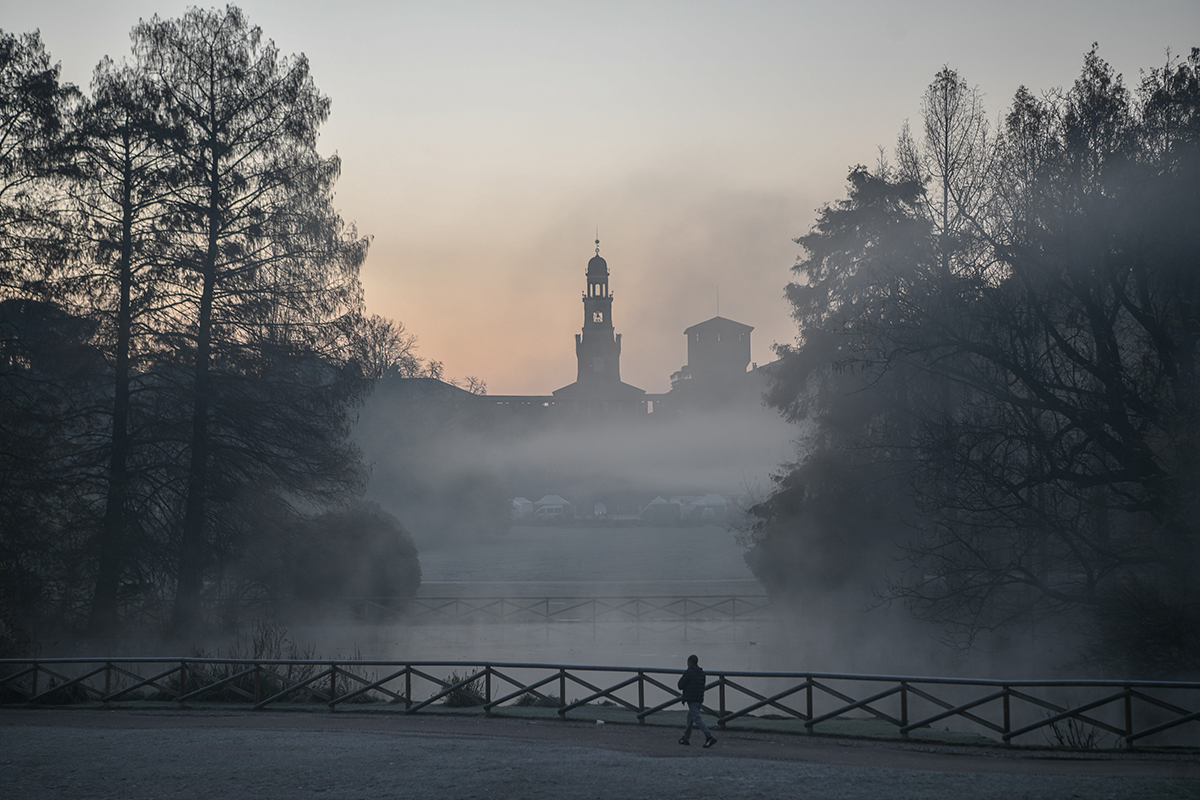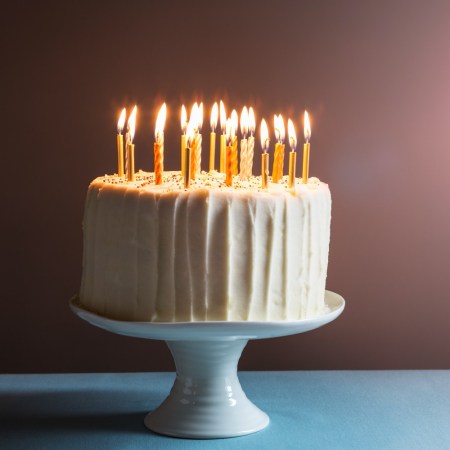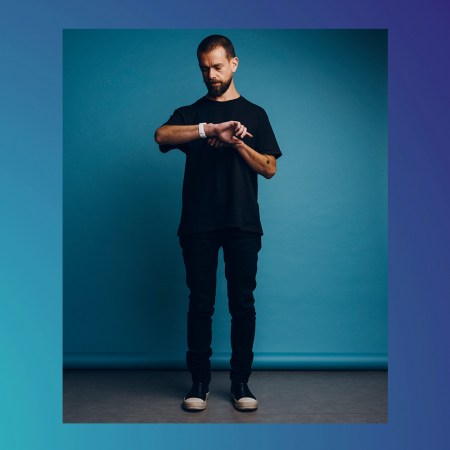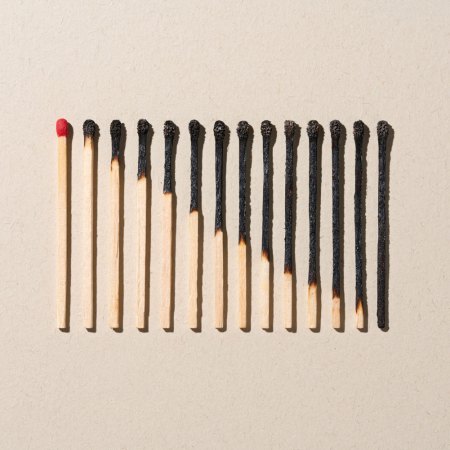In an interview with Axios a few years ago, Apple CEO Tim Cook explained why he gets up at 3:45 a.m. “I like to take the first hour and go through user comments and things that sort of focus on the external people that are so important to us,” he said. “And then I go to the gym and work out for an hour because it keeps my stress at bay.”
The average American wakes up at 7:09 in the morning. By that point, Cook has already put in an hour of work — according to Finty, he wakes up to over 700 fresh emails a morning — an hour of working out and grabbed a cup of coffee en route to the office. He’s a Starbucks guy.
We love this sort of stuff. Right? It doesn’t really matter where it’s coming from. We’re always game for a “successful person got ahead by getting up a little earlier than everyone else” yarn. And it isn’t just the C-suite who profess the splendor of pre-dawn wake-ups (though chief executives certainly lead the way, with Fiat Chrysler, General EleCtric, and Virgin America all on the Cook Clock). Actors and athletes similarly treat the early rising game as a point of pride and personal branding.
It’s an arms race of sorts, to see who can wake up as close to yesterday as possible. (Mark Wahlberg appears to lead the way, with an unconfirmed 2:30 a.m. listed in his routine heard ’round the world a couple years back.) The practice is common in the world of mere mortals, too — you definitely know someone who likes to chat alarms at dinner parties. And more likely than not, that person is a man.
Why are so many men so keen to treat each morning like they’ve got to make a flight? Is it the influence of male moguls? Does it just come with the territory of middle-aged manhood? Are all these men full of it and simply looking for another life hack to boast about? Or is there actual science behind the concept that waking up earlier helps make you a happier, healthier, more successful man?
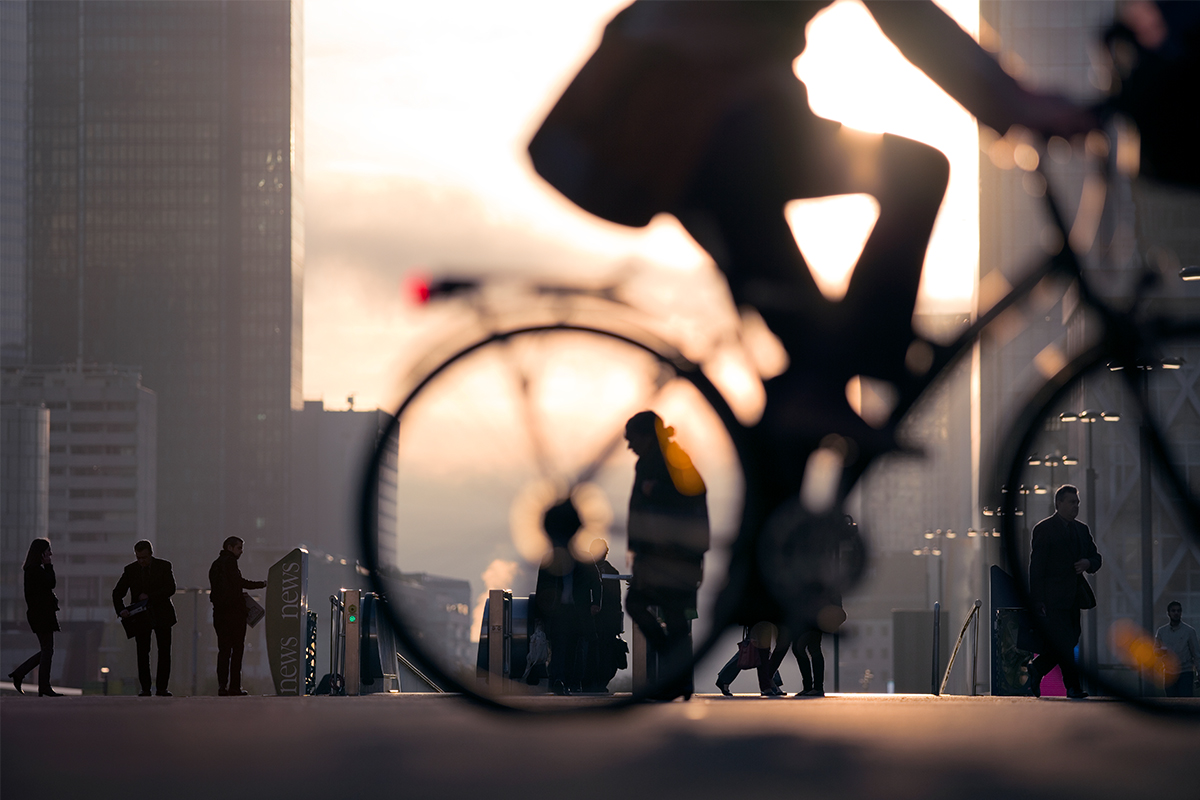
Billy Chan, the founder of a company that sells drones, went full early bird earlier this year. “After I started my business, I read several books about successful entrepreneurs. One common habit they all recommended is getting up early. You know … anytime before 5 a.m. And if you look at YouTube videos or blogs where influencers profile a ‘day in the life of a data analyst’ or ‘day in the life of an investment banker,” it isn’t surprising that most of them claim to get up before dawn.”
But Chan only lasted a little over a month on his new routine. “At first, I was really excited about my decision. I was actually able to get a few more tasks done in the morning. I felt like I was magically getting extra hours every day. But reality caught up to me eventually. I’d get extremely tired in the afternoon. Just after lunch, to be precise. That’s because I couldn’t manage to get to sleep extra early at night. I had to look after my children. As a result, my daily sleep time shrank from eight to four hours. I couldn’t concentrate during meetings at work anymore. So I gave it up.”
For those who attempt to rewire their daily routines, difficulty in adapting often feels like it boils down to the logistical: kids, commutes, the very human desire to stay up late and finish the game or movie (which suddenly sets you off course again). But there’s also a biological framework for why some people are better at getting out of bed than others. A study published in JAMA Psychiatry earlier this year exhibited that “sleep timing” and “diurnal preference” are genetically ingrained traits.
Sleep researchers call it “the master clock.” We each have a “bundle of neurons” in our brains that advise the body on when it’s sleepy, when it’s hungry and when it should probably get outside for some sunlight. These clocks were far less distinct hundreds of years ago — moody adolescents weren’t staying up texting friends until 2 a.m. during the Middle Ages — because everyone more or less followed the schedule. In eras and areas with electricity, though, variance in sleep-wake cycles has followed.
In other words: we’ve sort of lost control of our clocks. But that doesn’t mean that being an early bird or a night owl is entirely deterministic. It’s very possible to break the pattern. In 2019, English scientists rounded up 22 twenty-somethings with “extreme” late-guy tendencies. They were regularly going to bed at 3 a.m. But during the study, which took place over the course of three weeks, they were tasked with waking up three hours earlier than usual. They cut out afternoon caffeine and naps, stopped eating past 7 p.m. and ditched the screens before bed. After the study was over, they were getting to bed two hours earlier than when they’d started, on average.
And crucially, they reported lower depression and stress. Which appears to be a common theme — the same study that outlined the genetics of sleep timing also found evidence that night-owling could increase your risk of a major depressive episode. The researchers sifted through the data of 800,000 sleepers, cross-referencing their circadian tendencies with their risk for depression, and found that morning people had a 23% lower risk of major depression. That science came on the heels of basic, observational conclusions: night owls tend to eat or drink more and binge on screen-time just before bed, while early birds are more likely to exercise each day and be more alert in the workplace. Some research has even demonstrated that morning people live longer.
If you can actually commit to the lifestyle, then, could it turn your life around? Daniel Hess thinks so. A filmmaker based in Baltimore, he considers his early morning habit a “point of pride.” He says: “I see it as an opportunity to get ahead of the world with productivity. It’s also a great chance to just have space to write and think creatively. I typically wake up no later than 6 a.m. most days, even on the weekends. When I am in a real groove, I’m usually up by 5 to 5:30 just to make things happen. There is something amazing about writing and watching the sunrise. I wouldn’t trade it for the world. “
There’s a pervasive sense, amongst the cult of early risers, that they’re getting away with something. While the world is still asleep, they’re off to the races, getting a head start on work or some other endeavor that’s traditionally tough to squeeze into the middle of the day. Think six-mile runs, yoga sessions, meditative showers. For these men, the breadth of options is lightly intoxicating. One man who spoke to me, a father to four children, described the bliss of having “uninterrupted stress free hours” guaranteed to him every single morning. He confessed: “At first I hated the early starts. But I decided to stick it out and boy was it one of the best habits I ever created for myself.”
From this perspective, it sounds like a bit of a no-brainer. After all, middle-aged men are known to sit on toilets for extended periods of time in their quest for just a few minutes of alone time, away from all the chaos. Why not pull that time out of thin air — and spend it being productive while you’re at it? One good decision begets an entire family tree of great ones. And all that stuff about having more energy or feeling more confident throughout the day doesn’t need to be scientifically true, if it’s how it makes you feel.
The primary point of concern, though, would be why you’re getting in the game in the first place. Is it to mimic the aspirational morning of someone you listened to on a podcast once? Is it to get an eyebrow raise (and maybe, a raise raise) from your boss at work? Is it because it just feels like something you ought to be doing, as a man, in an old-school, briefcase-and-bringing-home-the-bacon sort of way?
Look: if you’re forcing yourself to get up early, day after day, in opposition to your master clock, and at the expense of a good night’s sleep, then you can forget about the list of longevity benefits. That’s where the practice falls apart, and fast. Dr. Shawn Talbott, a nutritional biochemist who studies the relationship between food and mood, and author of Mental Fitness, doesn’t mince words when discussing misplaced early morning efforts: “I think that the ‘wake up at 4:30 a.m. and brag about it on social media’ is stupid — or at least, misplaced enthusiasm. ”
“A lot of those guys are using it as a way to show how fit or tough or driven or creative they might be … and we have excellent science that tells us that sleep deprivation interferes with all of those things. If they’re waking up at 4:30 a.m. then they need to be asleep by 8:30 p.m. in order to get the required eight hours of sleep that we know is associated with higher levels of fitness, lower levels of body fat and superior metabolism of everything from stress hormones (cortisol) to blood sugar balance (glucose and insulin) to neurotransmitters (serotonin for happiness and dopamine for motivation) … the list goes on and on.”
According to Dr. Talbott, who has advised the Utah Jazz, MLS Real Salt Lake and a decent number of Olympians, proper sleep is a “secret weapon” for improving mental and physical performance. If you’re chasing an arbitrary wake-up time but sacrificing the optimal amount of sleep in the process, you’re self-sabotaging for no good reason. (Social capital is not a good reason.) And as Dr. Talbott points out, we have no proof that these highly successful people are getting to bed as early as they should be in order to accommodate their pre-dawn lifestyle.
“Are these guys really starting their nightly wind-down routine at 7:30 or 8 p.m. in order to be asleep by 8:30? They may think they’re ‘tough’ enough to get by on less than eight hours of sleep. But we have excellent scientific evidence to demonstrate that this is not the case. ‘Short sleepers’ (people who get six hours on average) compared to ‘normal’ sleepers (people who get eight) have more body fat and brain fog, and less sex drive. They do worse on every imaginable measure of mental or physical performance. I wish that these 4:30 a.m. zealots would put that level of enthusiasm into posting about optimal sleep like, ‘I got eight hours of restful sleep last night!’ That would be a trend that I could get behind.”
Ultimately, this boils down to knowing thyself. Sleep is an extremely important portion of our lives. It’s also extremely personal. That’s a good thing, though — you shouldn’t have to measure yourself against the mornings of people you admire or envy. Instead, measure your mornings against how you feel in your workouts, at meetings or during time with your family. That’s what truly matters here. If you can beat the rooster and still get seven to eight hours of sleep in, then all power to you. If you can’t, don’t worry. Waking up after 8 a.m. is no sin. Who wants to be a sleepy billionaire anyway?
Whether you’re looking to get into shape, or just get out of a funk, The Charge has got you covered. Sign up for our new wellness newsletter today.
